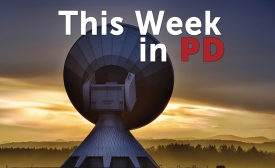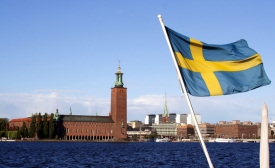disinformation
RT’s coverage may seem shoddy, at times even comical, but it serves its propaganda function efficiently. Media failures over the Iraq War and the financial crisis have disenchanted audiences, making them cynical and distrustful. The cynicism, however, has made them credulous toward those who present themselves as critics of the “mainstream media”...

Conan O'Brien, Russia and fake news are featured in this week's roundup
Current Time had its official launch in February. In a world of fierce competition from Russia, China, Iran, and others for the information space, the U.S. government is finally entering the fray in the ambitious and focused way that the current international climate demands. [...] With the motto “Real News for Real People, in Real Time,” Current Times focuses on live news. Russian audiences are used to highly orchestrated news and are attracted to more immediate, unedited content.
What appears to be a nightly newscast is about to begin, only with a very Ukrainian twist: Everything is a lie, from start to finish. “Welcome to ‘StopFake,’ the place where we set the record straight on fakes about Ukraine,” the anchor, Margo Gontar, intones. In other parts of the world, viewers might suspect the evening news is just a bunch of lies, but watching the weekly broadcast of “StopFake News,” they can be certain of it.
At other times, forged documents and fabricated news items consistent with Russia's strategic objectives have first appeared in obscure Swedish media outlets, which were picked up subsequently by Sputnik and "other sources of Russian public diplomacy" and broadcast to an international audience.

Russia's strategy toward Sweden blurs the line between public diplomacy and covert operations.







